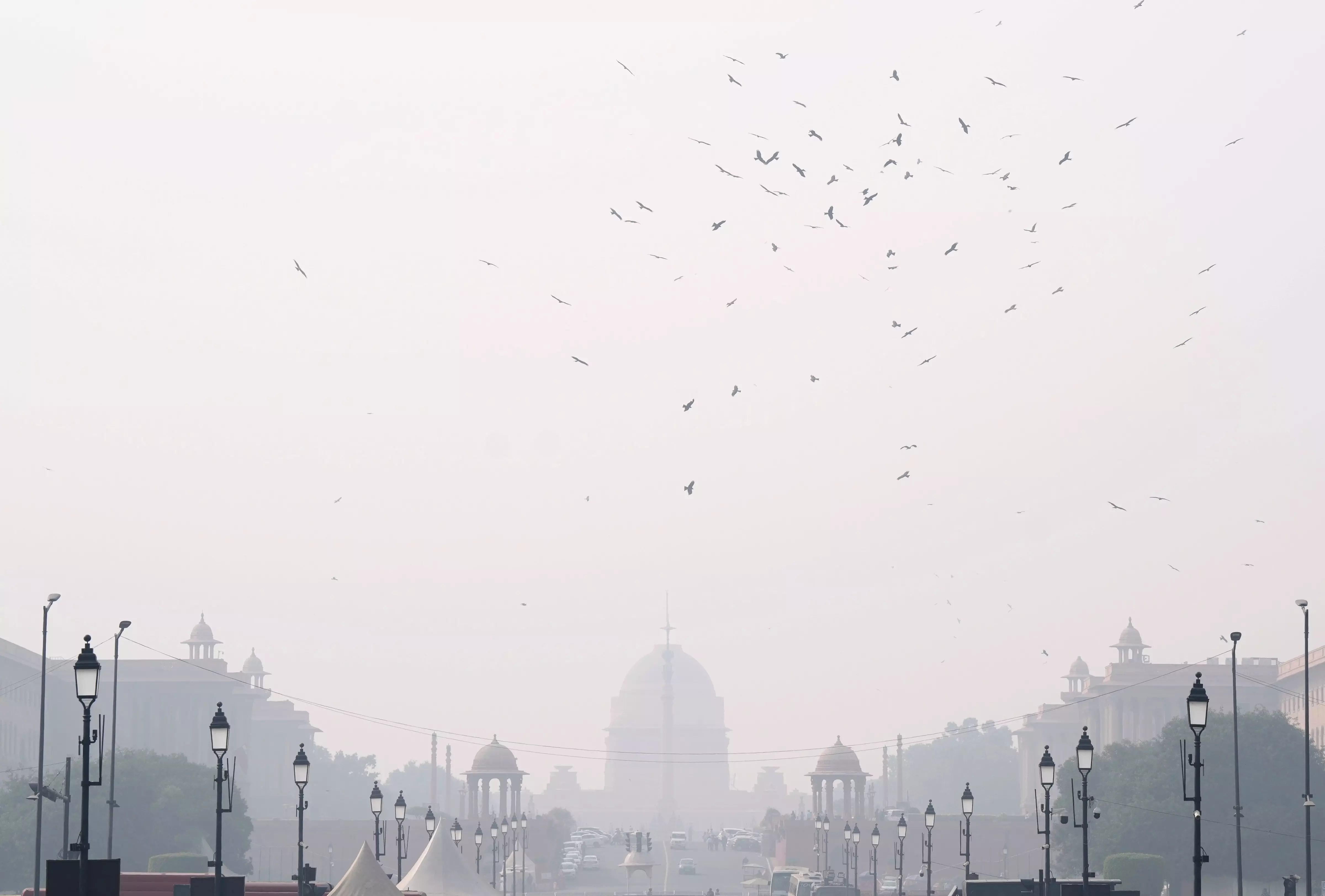
What Delhi govt has done so far to improve ‘severe’ air quality
Delhi Environment Minister Gopal Rai announced the odd-even scheme, under which cars can operate on alternate days based on their odd or even number plates

Delhi's air quality showed a marginal improvement on Monday (November 6). The national capital recorded air pollution levels seven to eight times above safe standards on Monday with the AAP government in Delhi announcing several measures to improve the air quality.
The city's 24-hour average Air Quality Index (AQI), recorded at 4 pm daily, stood at 421 on Monday, a marginal improvement from 454 on Sunday, even as a toxic haze persisted over the city for the seventh consecutive day.
According to the air quality early warning system, predominant winds were coming from northwest direction with a speed four to six kilometre per hour for few hours during daytime but calm winds prevailed rest of the day. The air quality is likely to be in the severe category from Tuesday to Thursday.
The humidity levels oscillated between 35 per cent and 98 per cent on Monday. The weather office has forecast a mainly clear sky for Tuesday with the maximum temperature expected to settle at 31 degrees Celsius and minimum at 14 degrees Celsius.
An AQI between 0-50 is considered good, 51-100 satisfactory, 101-200 moderate, 201-300 poor, 301-400 very poor and 401-450 severe. An AQI above 450 falls in the severe plus category.
Here are the measures announced by the Delhi government to improve air quality
Odd-even rule
The return of its odd-even vehicle rationing scheme after four years.
Delhi Environment Minister Gopal Rai announced the odd-even scheme, under which cars are allowed to operate on alternate days based on their odd or even number plates.
He also said a decision on allowing 50 per cent of staff in government and private offices to work from home will be made after Diwali.
Rai said directives have been issued to implement the stringent restrictions mandated under the final stage of the Central government's air pollution control plan for Delhi-NCR, called the Graded Response Action Plan (GRAP).
The restrictions under stage IV of GRAP, including a ban on all kinds of construction work and the entry of polluting trucks into the capital, took effect on Sunday after air quality in the capital dropped to "severe plus" (AQI above 450) levels.
GRAP categorises actions into four stages: Stage I - 'Poor' (AQI 201-300); Stage II - 'Very Poor' (AQI 301-400); Stage III - 'Severe' (AQI 401-450); and Stage IV - 'Severe Plus' (AQI >450).
Online classes
All schools in Delhi have been directed to suspend physical classes, except for classes 10 and 12, until November 10, Rai announced on Monday.
However, for classes 10 and 12, schools have the option either to conduct online classes or hold physical classes, a circular from the Directorate of Education (DoE) said.
"In view of the implementation of Stage IV Graded Response Action Plan order issued by CAQM, it is ordered that all classes - except 10 and 12 -- in all schools of Delhi shall be held online up to November 10. Teachers shall come to school and conduct classes online," a circular from the DoE said.
"As for the Board classes, the Head of Schools shall have the option either to conduct the same online or call the students to school for physical classes," the circular said.
Primary schools closed till November 10
On Sunday, Delhi Education Minister Atishi announced the closure of primary classes of all schools until November 10 and said schools have the option of teaching online for classes 6 to 12.
Sprinkling of water
The Delhi Fire Services (DFS) has started sprinkling water at 13 hotspots to curb rising air pollution in the city, officials said on Monday.
The identified pollution hotspots are Narela, Bawana, Mundka, Wazirpur, Rohini, RK Puram, Okhla, Jahangirpuri, Anand Vihar, Punjabi Bagh, Mayapuri and Dwarka, DFS Director Atul Garg said.
These hotspots were identified based on the annual average concentrations of PM10 and PM2.5 in these areas, Garg said.
"Sprinkling water in these 13 locations will help settle down dust," he said, adding that a total of 12 fire tenders were pressed into service for the purpose which already started spraying water from Sunday.
(With agency inputs)

